WHAT IS “REAL LIFE”?
Let’s start by acknowledging that “real life” is everything that we perceive::everything we have ever seen, touched, heard, tasted, smelled, felt, and remembered, and it is all filtered through our brains and colored by who we are, what we know, think, and believe. The same is true for everyone else. Therefore, real life is not exactly the same for everyone.
If the events, storyline, and characters in your novel were generated from your imagination, you are using the total of what you know about real life including snatches of what you have personally experienced, read, heard from others, and so on. Good Luck. That’s not what I’m getting at.
In this article, the “real life” being addressed is narrowed down to the parts of real life that can be used in fiction and, potentially, the writer can be sued for. This whole discussion is about how to avoid a law suit.
Essentially there are five things from “Real Life” to consider:
● Writing about a real event or experience.
● Writing about a series of events and experiences making up a period of time or a lifetime.
● Writing about or using the persona of a well known / famous event or person.
● Referring to the names of real businesses, products, and places in writing.
● Writing about or using the persona of people we know, acquaintances, people we see,
and those we merely know about, such as celebrities.
In terms of events and experiences [one or a lifetime], these can be something that happened to the writer personally, and that writer wants to tell the story of his/her experiences. Most of the time there will be other real people involved but it is the author’s story, the one s/he lived.
A variation is that the event or events were experienced by several or many people, including the writer, and it is their story to be translated from real life into words on paper. This usually involves getting permission, interviews, review of draft by others, and so on.
The third variation is that the event or events were experienced by several or many people, but not the writer, and one or more of these people has told the writer about the events, or the writer has researched. Again, we’re talking about permissions, interviews, reviews, etc.
In the case of transforming a real live person into words on the page, it depends on whether the intent is to write about the character himself (i.e. that living person is playing themselves as the character) or simply to transfer personality and/or physical characteristics of the living person to a character in a book.
Unfortunately, all of these scenarios can get a writer into trouble.
ARE YOU LIABLE TO GET SUED FOR LIBEL?
Because this is about what a writer can do to avoid getting sued, let’s look at what the risks are. Remember, the purpose of the laws are to protect individuals and organizations from unwarranted, mistaken or untruthful attacks on their reputation.
allegations have damaged his reputation and have made
almost impossible any further visits to the woods.”
Image Source: cartoonstock.com/slander.asp
These words mean essentially the same thing, and they refer to any published material that damages the reputation of an individual or an organization. A person is libeled if a publication:
• Exposes them to hatred, ridicule or contempt,
• Causes them to be shunned or avoided,
• Generally lowers them in the eyes of society, or
• Discredits them in their trade, business or profession. Libel is defined as a
“false statement of fact “of and concerning a person that damages their reputation."
The law of defamation is not concerned with who you intended to target, but who gets struck by the low blows. That means an unintentional defamation is actionable. If you intended to pattern the evil aunt in your book after that awful neighbor Mrs. Whatserface, but town librarian Miss Paininthebutt thinks you used her for the evil aunt character [and everyone else in town thinks the same], it will be Miss P. whom the courts care about.
● Slander
Slander is defined as ‘defamation by word of mouth’, which shouldn’t affect authors.
● The Right to Privacy and The Right of Publicity
Libel is not the only issue to consider, but also the Right To Privacy. Something written in a book might be provably true, taking care of the libel issue, but could also expose truths about someone’s personal life that invade their privacy, which is an actionable claim. There are four kinds of Right to Privacy.
• First, there is an intentional intrusion into a private place or affairs of another and that intrusion would be highly offensive to a reasonable person. [Peeping Tom offense.]
• Second is the appropriation of name or likeness, for intentional use without consent of another’s name or likeness for your own benefit. This is the Right of Publicity claim. A person who is not famous [who does not make money from who they are] will not have this claim.
• Third, there is unreasonable publicity given to private life which means publishing facts which are not of valid concern to the public and which would be highly offensive to the reasonable person. True but embarrassing, and no one needs to know.
• The fourth invasion of privacy claim is making someone look like something they are not in a way that is highly offensive.
● The Burden Of Proof Lies With The Defendant
“In libel cases, the burden of proof lies with the defendant [the author or publisher] and not the plaintiff. In other words, you must prove that what you write is true. The person you’ve targeted does not have to prove that you’re wrong. This is because libel laws are meant to compensate people for damage done to their reputations — they’re not meant to punish someone for lying.”
Source: jerichowriters.com/libel-law-for-writers-and-authors
Note: A true statement that damages someone’s reputation is not libel! It may, however, be an invasion of privacy.
● “Do you base your characters on people you know?”
Authors are asked this question frequently. I have heard, or read, many a female author respond by saying she had used her ex-husband as the villain in her novel, exposed all his nasty little habits and the rotten things he’d done, and ripped him a new one. Ha hah!
Understandable, but risky. I’ve never heard about any of these particular authors being sued for libel, but some writers do get sued. It's a real thing, particularly if you are a successful writer who is well known and well paid for your work.
So, the question is how can a writer who utilizes real-life people, prototypes of real people, or real events in books for sale to the public, do so without getting sued?
I’m not saying authors should sit around worrying about getting sued but writers need to know how to avoid it. I’m not a lawyer, so all of this is based on what I have read from legitimate sources and no personal experience whatsoever.
HOW TO USE REAL REOPLE FOR CHARACTERS
Using real people as characters in your book can be done by changing the physical characteristics of your character enough to disguise his/her identity. The risk of being sued is further reduced if your character is treated as a likable character rather than a malicious or hateful person. Risk can also be reduced by using parody. Absurd situations are less likely to be believed as truth by the public. Parody may not work in your story, but it is a option.
Note: The main protagonist may be flawed but should be, ultimately, likeable [even if it takes a few chapters to get there], so it’s touchy to pattern the main protagonist after someone the author dislikes intensely. [The people writers hate usually end up as the villains, obnoxious bystanders, or disgusting interfering relatives.]
Attempt to avoid libel problems by combining or cloning several people’s physical traits and biographical facts, so no single person's actual “DNA” appears in your book. Here are a few clues to using a living person as a character in a novel.
.
• Use your own real life as a starting place and a resource. [All writers do that, I believe, at least at the start of their careers].
• Change the names ‒ all writers know to do that ‒ but also change the initials. Changing the name from real-life Doug Compton to fictional character Dan Crampton may not be enough. This also applies when changing the name of a location.
• Change the physical characteristics and mannerism of your character enough to disguise his/her identity.
• Make the character likeable
• Use a broadly drawn caricature of your real- life prototype.
• Try separating the physical characteristics from the personality characteristic and mannerisms of the prototype.
heart- warming revenge memoir I’ve ever read!”
Image Source: bradveley.com/heartwarming_revenge_memoir/
WHAT TO TAKE FROM THE LIVING PROTOTYPE
● Physical characteristics
The most obvious things we can take from a living prototype are physical features [face, body type, posture, hair, whatever]. It can be an entire picture of the person, but often one or two features are enough. The features that make those people memorable and intriguing, like Jimmy Durante’s nose or Freddie Jones in the movie Dune, with eyebrows that grow up over the forehead. This may include some related mannerisms that involve the outstanding feature, such as Groucho Marx always wiggling his thick eyebrows.
And don’t forget body type and other types of physical features besides facial.
Source of Images: pinterest.com/amazedhuman/intriguing-faces/ scifibr.wordpress.com/freddie-jones
pinterest.com/pin/2562830 stockphoto.com/large-ears imdb.com/name/nm0002051/
35023540727/
● Physical Mannerisms
Someone with nothing particularly outstanding in their looks can still have mannerisms that are unusual and noteworthy. They could also do something such as always bowing to people when they meet or tipping their hat. Mannerisms such as rubbing the chin or scratching the head when the person thinks, are fairly common. That can work to the writer’s advantage [harder to pin down to a particular real person] or to their disadvantage [not unique enough to make the character interesting.] How about a character who has a strange voice and claps her hands every time she laughs.

More often than not, it is the real individual’s personality traits and the things they do that writers want to replicate in characters. [Here is where an ex-husband comes in.] There is more wiggle room using personality traits rather than physical features. More than one cranky, mean boss has a temper and yells at his employees. Lots of people are always moody or react with hostility when confronted with criticism.
Groucho Marx - Image Source: Don’t use all the live person’s traits. If your prototype is time.com/4049402/groucho-marx-125 loud and obnoxious, change the way your character demonstrates these unpleasant traits.
Finally, don’t let your living prototype constrain your fictional character. Allow your characters to do other things than the prototype might have done, to learn from experiences. Don’t keep your fictional character from changing because the real life prototype never learned anything new or changed.
DITCH THE CELEBRITIES
A writer should not use famous people or celebrities in lead or subordinate roles in a novel. If you intend to do that, you are out of this league and need to get a lawyer specialized in this kind of law.
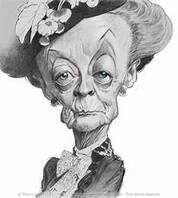
Actress Dame Maggie Smith
Image Source: pinterest.com/pin/249316529357109064/
Most of the time, if the celebrity is not a main character, you don’t need the name or a fictional one will do. If you want readers to believe you are talking about Celebrity X, a good description of the person and their actions and reactions will say it without needing the name. (Also, using real people tends to date your novel.)
TRADEMARK NAMES
When writing either non-fiction or fiction, a writer may have occasion to mention a trademarked product.
Use of trademarked names in fiction does not violate intellectual property laws. However, the writer needs to be cautious depicting real businesses and products. For example, if you have a character die from a bad hamburger at Wendy’s or hurt himself because of a defective pair of Nikes, then prepare for a trip to libel city.
Also, you must not turn a trademarked brand name into a verb or a non-proper noun [called trademark dilution]. In other words, don't have characters "hovering the living room," "drinking a coke," or "googling their names." Either make the products sound like heaven-on-earth, or simply refer to a vacuum cleaner or soda pop. As long as the portrayal is innocuous, and brand names are capitalized and not "genericized," there is no need for any kind of acknowledgment.
In fiction writing, it is difficult to always avoid using the names of real businesses, products, and locations. It is becoming common to include a section in books that tells the reader who owns the trademark to those businesses. If you don't acknowledge trademarks, you can open yourself to lawsuits from businesses who are trying to protect their trademarks. If a business doesn't protect their trademark, they can lose it. And keep your complaints to yourself. Negative or untrue comments can open you up to libel lawsuits.
Also, be careful if you make up fake business and product names. They may not be fake. Check to be sure before you use them.
REAL PLACES
Most of the time using real places for settings is nothing to worry about. I suppose if the writer wants to defame the community or city, h/she might come toe to toe with the Chamber of Commerce, but that’s unlikely unless your words could be taken to mean the place is dangerous, particularly for tourists. [The movie "Jaws" for example.]
I’ve found that most of the time the biggest concern is an accurate, but not necessarily detailed, description of the city or town regarding streets and where they go, street names, layouts of various districts or quarters, landmarks, and physical features. Don’t put a big river running through the city unless it actually has a big river running through it. You can invent a fancy restaurant, but don’t locate it in the worst part of town or next to the railroad unless your plot has a specific reason to do so.
No matter how obscure your setting is, there is always at least one reader out there who is going to know whether or not your description is accurate. And that person will let you know… but law suits are unlikely.
If you need to, create your own city. Just be careful about what you name it.
“THE WAY IT REALLY HAPPENED” DOESN’T MEAN IT’S GOOD FICTION
As much as we may want fiction to replicate “real life”, or vice versa, they are not the same. Each “reality” has its own rules and, whether or not you are writing fiction or non-fiction, you have a theoretical contract with the reader. If the book is non-fiction, the writer is agreeing to be truthful, at least to the extent that it is possible.
Fiction, on the other hand, promises to deliver to the reader a compelling but plausible story [within the parameters of the genre] with vivid, well defined and believable characters and a dramatic plot.
The fiction writer is expected to make whatever changes needed, big or small, and expand the scope of the story [even if the real events didn’t happen that way] to create good fiction. Besides, “real life”, as most of us experience it, can be pretty routine and dull much of the time, and “dull” is not good fiction.
of plagiarizing you for using the same words
when they were in a different order.”
Image source: cartoonstock.com/court_case.asp
Harry Bingham, writing for jerichowriters.com/libel-law-for-writers has the following tips for writing safely.
"● Don’t solely rely on proving that your statements were literally true if, when they’re taken as a whole, they have an extended, more damaging meaning.
● Be especially wary when referring to events in the past. If someone did something illegal or bad in the past, don’t imply they are still doing it unless you can prove it. And even if you can prove it, do you want to expend the time and cost to do it in court?
● Don’t exaggerate in your claims or language. Don’t suggest or predict dire consequences.
● Watch out for innuendo. Comments alone may not appear defamatory but in context with other information about the person, they can get you into a libel suit.
● Don’t repeat rumors.
● Don’t quote others. If you publish defamatory remarks about people or organizations made by other people you will be just as liable to be sued as they are. So if you can’t prove the truth of their statements, don’t repeat them.
●Don’t draw unprovable conclusions. It is a common mistake to draw unverifiable conclusions from the basic facts.
● Don’t use irresponsible adjectives. A misplaced word can result in costly action.
“Disclaimer: This article discusses legal issues of general interest and is not designed to give any specific legal advice concerning any specific circumstances. Libel law is fact specific. Further, is no single body of law applies. Today, information travels far and wide. Many countries do not recognize the protections we give authors and publishers. It is important that professional legal advice be obtained before acting upon any of the information contained in this article.” jerichowriters.com/libel-law-for-writers-and-authors
□
Sources
https://www.pinterest.com/pin/256283035023540727/
http://writersrelief.com/2011/03/21/fiction-or-nonfiction-memoir-or-novel-know-what-to-call-your-story-or-book/
http://www.copylaw.com/new_articles/real_people_in_fiction.html
https://www.istockphoto.com/photos/large-ears
https://time.com/4049402/groucho-marx-125/
ttps://julieschumacher.com/writing/essays/turning-real-life-into-fiction/
https://www.writersdigest.com/online-editor/6-tips-for-writing-fiction-based-on-true-events
https://www.popsugar.com/entertainment/Novels-Based-True-Stories-45479760
https://writersweekly.com/ask-the-expert/using-real-peopleplacesevents-in-fiction
https://jerichowriters.com/libel-law-for-writers-and-authors-what-you-need-to-know/
https://writehacked.com/fiction-writers-guide-using-real-people-story/
https://writing.stackexchange.com/questions/2110/using-the-real-world-in-writing
https://www.writermag.com/improve-your-writing/fiction/current-events-in-fiction/
https://annerallen.com/2012/02/8-tips-for-turning-real-life-into/
https://www.imdb.com/name/nm0002051/
https://www.cartoonstock.com/search?type=images&keyword=Sue+the+author&page=1
https://www.cartoonstock.com/search?type=images&keyword=Sue+the+author&page=1
https://www.cartoonstock.com/directory/l/libel_suits.asp
https://www.istockphoto.com/photos/large-ears
https://time.com/4049402/groucho-marx-125/
https://bradveley.com/heartwarming_revenge_memoir/
https://theiapolis.com/movie-122Z/dune/gallery/freddie-jones-as-thufir-hawat-in-dune-1984-1078818.htmlhttps:/www.pinterest.com/pin/256283035023540727/

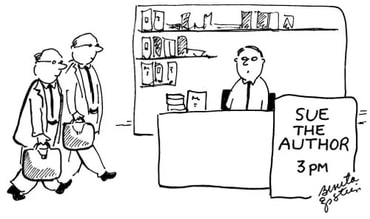
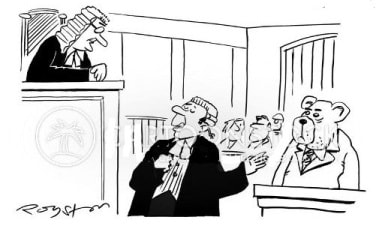
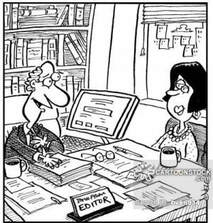

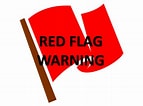
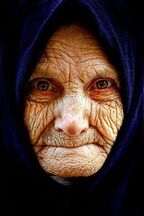




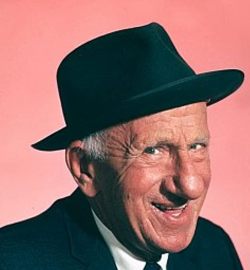
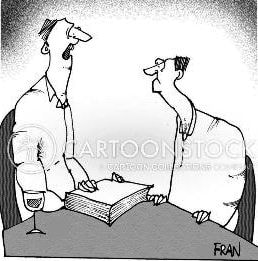
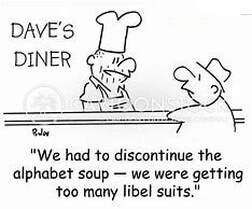
 RSS Feed
RSS Feed